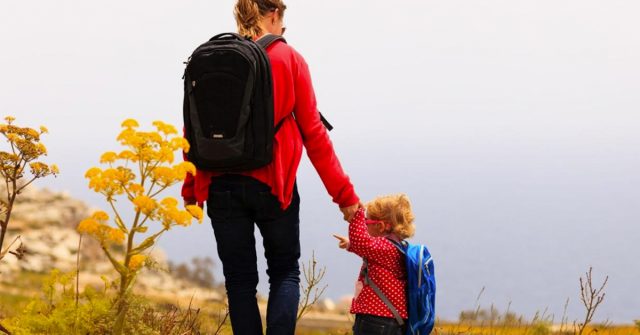In my life, I had the opportunity to be around so many children, watch them as they grow, and have an active role in their development. Thanks to my older brother and sister, I’ve been lucky enough to receive the greatest blessing in life at a very young age. Three beautiful angels: one nephew and two nieces. So basically, all my life, I’ve been surrounded by children.
I’ve been there when they got their first teeth, I’ve been there when they started walking, I’ve been there when they started showing much more interest in the world around them, I’ve been there in every single moment of their lives.
And if there’s something I learned from being an aunt to three beautiful angels, it’s that children don’t need much to be happy. They don’t need a lot to get creative and enjoy their time. In fact, as opposed to what most parents think, they don’t really need the newest, most popular toys and gadgets to boost their cognitive developments and creativity.
What they need are fewer products and more experiences.
And guess what? Science agrees as well.
Recent studies have revealed that buying our children many toys and things to play with is most likely to result in the opposite of the effect we wish to see in them as they grow. Dissatisfaction, confusion, indifference, and emotional overwhelm. In other words, it may actually make them less happy.
One of the first studies on this subject is the article published in 2009 in Research Gate called Patterns of Home‐ and Classroom‐based Toy Play of Preschoolers With and Without Intellectual Disabilities.
In this study, Dr. Michael Malone, a professor of Early Childhood Education at the University of Cincinnati еxplains that while too many toys can push children into solitary and isolated play causing them to feel unproductive and lonely, fewer, but carefully selected toys can, in fact, stimulate them to cooperate and share more with the people around them.
Another confirmation of the validity of his statement is the opinion of the imminent childhood development researcher, Clair Lerner, who also believes that when children are overwhelmed with a lot of different toys, they tend to play less. According to her, a room full of toys can sometimes distract and overwhelm children so much that it might actually mess with their mental focus and prevent them from learning from their toys.
The same has been confirmed by another important study, published in Science Direct in 2017. According to the authors, when provided with fewer toys in the environment, toddlers engage in longer periods of play with a single toy, which allows them to focus better, explore new territory and play more creatively.
And if that isn’t enough for you, there is another reason why fewer toys equal more happiness.
It’s simple.
There is no product, no material possession of any kind that could ever replace experiences. The joy of exploring, the excitement, the gratitude, the generosity, the happiness felt through experiences lives on forever. Even after the day ends and the moment is gone forever. What you felt and learned from your experiences is always there to stay with you. The same cannot be said about material objects, though. All of those products that we keep purchasing to make our lives more interesting eventually lose their value once a better one comes along…
But, experiences… Oh, experiences last a lifetime. Because they add value to your existence. They become a part of your being. Your soul. Your life.
The happiness that derives from childhood experiences, such as playing outside, digging, rolling in the dirt, exploring nature, learning through all of the senses is far more valuable and precious than the fleeting pleasure that children get from toys…
So, there you have it, dear parents. Do not waste your time worrying about gifts. Instead, focus on providing your children and your entire family with valuable experiences. Experiences that will forever remind them of a wonderful childhood.
After all, we do not remember possessions, only feelings, and moments…





